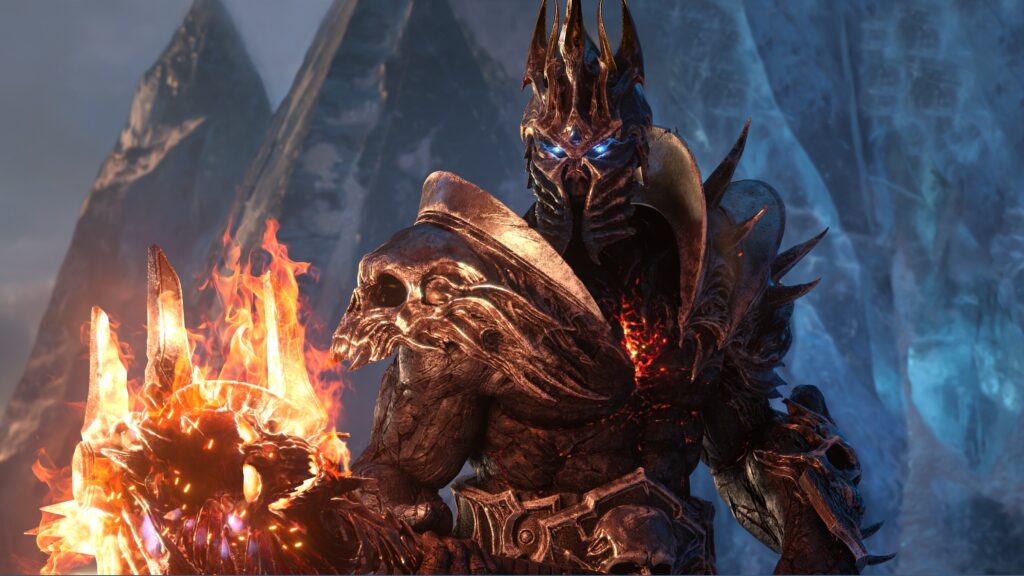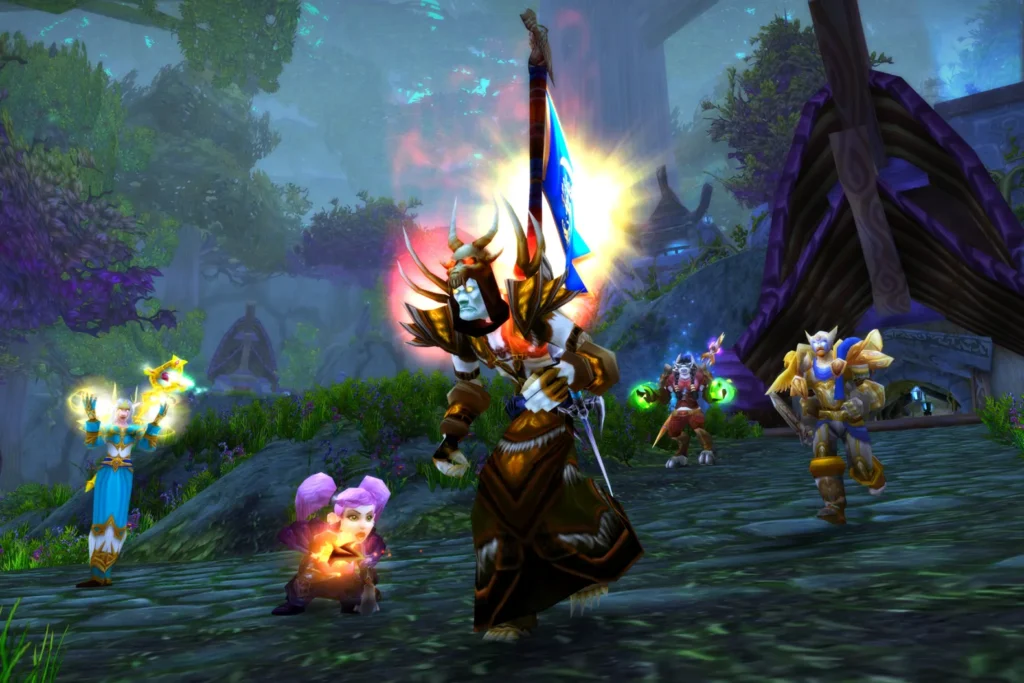
Level Up Your WoW Knowledge with Honest Guides and Insights
Dive into straightforward World of Warcraft tips, raid breakdowns, addon picks, and patch updates—written by a player who actually plays.

Dive into straightforward World of Warcraft tips, raid breakdowns, addon picks, and patch updates—written by a player who actually plays.

FIND ANYTHING
YOU CAN POSSIBLY NEED
ALWAYS READY
From Mythic raid strategies to quick PvP gearing tips, every guide is written with clarity and tested in real gameplay. No filler, no clickbait.


QUICK SUPPORT & DOCS
Everything shared here comes from hands-on experience. No bots, no fluff — just real advice from someone who plays WoW daily.
Reaching high-end goals in World of Warcraft often requires a major time commitment. Players juggling work, family, or other interests may find the grind to legendary gear, max-level dungeons, or coveted mounts eats into their available play hours. A WoW Boost service steps in to bridge that gap. By investing in a boost, you gain direct access to experienced players who tackle key objectives on your behalf. Instead of spending weeks farming reputation, farming mythic-plus keys, or pushing arena ratings alone, you schedule a session and log in at the agreed time. The pros handle the tough parts—optimized routes, boss mechanics, and high-pressure timed runs—while you stay active in the group, earn full credit, and collect all loot or rewards.
Time savings is the primary draw: a task that might take dozens of hours solo gets compressed into a single guided run. Boost teams know where to skip low-value trash packs, which boss phases demand focus cooldowns, and how to reset or queue instantly for multiple attempts. You skip the trial-and-error of random matchmaking or guild recruitment, and instead plug into a session designed for efficiency. For many players, that means doubling or tripling their weekly progress. Beyond raw speed, boosts remove frustration from repeated wipes and late-night queues. You lock in a clear schedule, reliable start time, and progress guarantee—often with free retries or partial refunds if objectives aren’t met.
Ultimately, a WoW Boost investment is a trade-off between time and gold: you pay for the chance to experience top-tier content without the grind. This approach appeals to completionists chasing seasonal rewards, casual players wanting to hit max level quickly, and competitive gamers who need edge-of-seat performance for PvP titles. By understanding the value proposition—time saved, reliable results, and hands-on learning—you can decide whether a boost fits your goals and budget before making a purchase.
WoW Boost services come in several formats, each tailored to different in-game goals. Mythic+ dungeon carries focus on timed key completions at various difficulty levels. You choose the keystone level—say +10, +15, or higher—and experienced teams guide each pull, skip mechanics, and boss fight to secure a timed clear. PvP rating pushes target arena or battleground ranks. Boosters queue as a coordinated squad, win matches in succession, and carry your rating to the desired threshold for conquest gear, titles, or mounts. Quest-skip boosts cover long quest chains or reputation grinds, letting you fast-track your character through zones or reputation vendors. Finally, raid boss runs zero in on specific boss kills—often in legacy raids—to farm rare mounts, achievements, or heirloom tokens without running full raid lockouts.
Within each service type, you’ll find solo-player or full-team options. Solo-player boosts mix you with a handful of pros and other customers, balancing price and speed. Full-team boosts replace your entire party with experts for maximum pace, though at a higher cost. Pricing usually scales with difficulty or rarity: higher mythic keys and top-tier PvP brackets cost more per run, as do low-drop-rate mounts or high-level quest skips. Most providers offer tiered packages—single runs, bulk discounts for multiple sessions, and seasonal bundles. They often include clear guarantees, such as a free retry on a missed timer or a partial refund if rating goals aren’t reached.
Choosing the right boost type depends on your priority: time-efficient gear upgrades, fast leveling, PvP rewards, or rare collectibles. By matching your goals to the service format, you set clear expectations and can compare offerings on equal footing. In the next section, we’ll break down how pricing works and what factors drive the cost of each boost category.
Understanding boost pricing starts with knowing which factors influence cost. First, difficulty level or bracket matters: a +15 mythic+ key carry runs faster and costs less than a +20 carry, simply because higher keys demand more time and effort. Similarly, a 1600→1800 PvP rating push costs less per point than a 2000→2200 push, as top-tier matches require more coordination. Quest-skip boosts vary by chain length and reputation grind: completing a single faction grind from neutral to exalted commands a lower fee than covering multiple factions or character levels. Raid boss runs price per boss or per instance wing, with rare-drop bosses carrying a premium for multiple attempts.
Second, service guarantees affect cost. Providers that promise a timed clear or rating threshold often charge more for that certainty. A free-retry policy on a missed timer, or a partial refund if rating goals go unmet, increases the provider’s risk and thus the price. Conversely, services with no guarantees may undercut market rates but leave you vulnerable to wasted gold if runs fall short. Third, team composition plays a role: full-squad carries with five pros cost more per session than mixed squads with two or three experts and customer slots filling the rest.
Typical price ranges vary by region and provider, but you can expect the following ballpark figures:
| Service Type | Common Price Range (USD) | Notes |
|---|---|---|
| Mythic+ Key Carry | $30–$80 per key | +10 to +15; higher keys scale up linearly |
| PvP Rating Push | $50–$120 per bracket | 2v2, 3v3, or RBGs; premium for top tiers |
| Quest-Skip Boost | $50–$150 per chain | Zone-based or faction reputation chains |
| Raid Boss Run | $15–$40 per boss | Legacy raids; rare mounts increase cost |
When evaluating boost prices, compare cost-per-minute or cost-per-point metrics rather than flat fees. Factor in your own time value: if you estimate solo work would take ten times longer than a boost, a higher fee may still represent a net gain. Finally, always read the fine print on retries, refunds, and schedule changes to avoid hidden fees. With clear pricing knowledge, you can invest in boosts that match both your in-game goals and your real-world budget.
Choosing a reliable boost provider means looking beyond the lowest price. First, check transparency: a good provider lists the experience or ratings of its booster team, shows past run logs or video clips, and explains its time guarantees in clear terms. Second, examine support channels: providers with live chat, Discord servers, or 24-hour email response help you resolve scheduling issues or technical problems quickly. Third, read user reviews on independent forums or social media; look for detailed feedback on run quality, start-time accuracy, and refund handling. Finally, verify pricing clarity: the best services break down costs per run, per retry, and note any transaction fees up front.
Below is a comparison table of key factors to weigh when vetting a boost service:
| Comparison Factor | What to Look For | Why It Matters |
|---|---|---|
| Transparency | Booster ratings, run statistics, video proofs | Ensures you get skilled players and honest claims |
| Support Channels | Live chat, Discord, email, phone availability | Quick help if you miss an invite or face delays |
| User Reviews | Recent, detailed feedback on forums or Reddit | Real-world insight into reliability and quality |
| Pricing Clarity | Full cost breakdown, fee disclosures | Prevents hidden charges or surprise add-ons |
| Schedule Flexibility | Multiple slots in your time zone | Lets you book at convenient play times |
Use this table to compare two or three services side by side before booking. Never pick a provider based solely on price—poor support or vague guarantees could cost you more time and gold in the long run. Instead, weigh each factor, prioritize what matters most for your goals, and choose a service with solid ratings in each category.
Account safety should be your top priority when using any boost service. Never share your Battle.net password or authenticator codes. Always enable two-factor authentication on your Blizzard account to prevent unauthorized logins. When connecting to third-party voice servers or Discord channels, avoid providing personal data—stick to your character name and server. Only install add-ons from trusted sources like CurseForge or the official Twitch app to prevent malware or keyloggers.
Follow these best practices to keep your account secure:
By following these steps, you minimize risks like phishing, account theft, or unauthorized charges. A secure account lets you focus on the boost session itself, confident that your personal data and in-game progress remain protected.
Even the best boost teams can face unexpected issues—server lag, disconnected players, or rare wipe scenarios. That’s why clear refund and retry policies are crucial. A solid policy should define what constitutes a failed run (e.g., missing a timed clear by more than 60 seconds or falling short of a promised rating threshold) and spell out your options if that happens. Many providers offer a free retry of the same run, sometimes with a reduced time guarantee. Others provide partial or full refunds based on how close you came to the target.
Below is a list of common guarantee models and what they mean for you:
Before paying, read the fine print: know the exact cutoff for a failed run, any deadlines for requesting a retry or refund, and the process for submitting a claim. Providers with clear, generous policies demonstrate confidence in their service and respect for your investment. Always confirm these details in writing—via the website terms or a follow-up message—so there’s no confusion later.
Booking your session correctly avoids mix-ups and wasted time. Follow these steps for a smooth reservation:
Following this list ensures you and the boost team connect on time. Clear communication and accurate details reduce errors, so every session starts smoothly and focuses on achieving your goal.
Once the boost completes, take a few minutes to confirm you received all promised progress and rewards. First, check your character pane or rating window to verify key completion, new item level, or rating jump. Open your Mounts and Pets journal or Achievement tab if you booked mounts or achievements. For dungeon and raid runs, inspect your gear slots to equip any upgrades.
Next, document your session:
If something fell short—missed timer or rating target—contact support immediately with your proof. Most services honor retry or refund policies within a specified window (often 24–48 hours). Be clear and concise in your request to speed resolution.
Finally, leave a public review on forums or social channels. Honest feedback helps other players choose quality services and encourages providers to maintain high standards. If you had an exceptional run, consider tipping your booster or booking a follow-up run for a new goal. By completing these steps, you close the loop: you secure your results, protect your investment, and contribute to a trustworthy boost community.